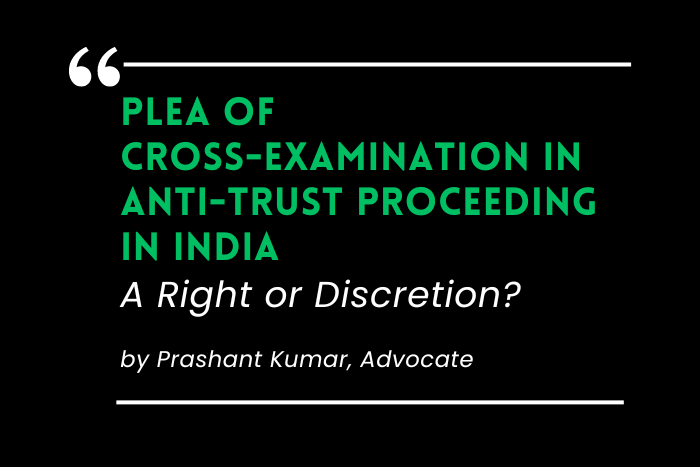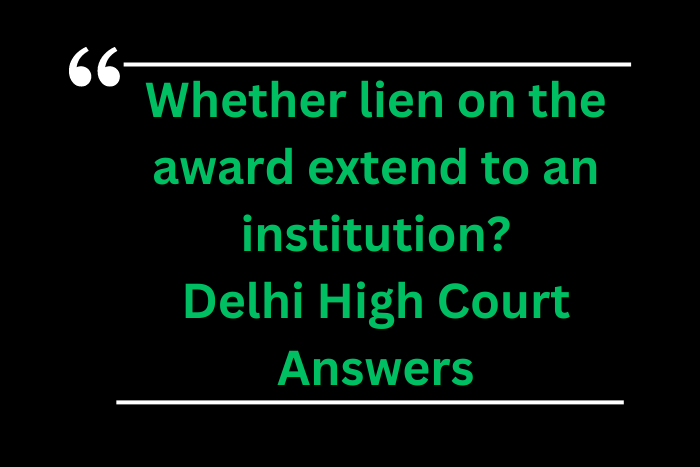Whether an appeal under Section 37(2)(b) of the Arbitration Act would lie where the Arbitral Tribunal has refused to grant an injunction against the invocation of bank guarantees? Rules Delhi High Court.
On April 1, 2024, the Hon’ble High Court of Delhi, in the case of Ramky Infrastructure Ltd Tk Engineering vs NHAI [ARB.A.(Comm.) 17/2024], refused to interfere with the interim order of the Arbitral Tribunal that refused to grant an injunction against the invocation of the specific bank guarantees.
It is the settled legal position that a bank guarantee is an independent tripartite agreement between the parties to the principal contract and the bank, which must be honoured on its own terms. Disputes with regard to the contractual obligations of the parties, including as to whether the bank guarantee has been invoked in terms of the contract, do not fall within the scope of adjudication at this stage. The only other exception to this general principle, however, is if the invocation is not in terms of the bank guarantee itself.
Background
The disputes originated from a Contract Agreement (CA) between Ramky Infrastructure Ltd & Ors. (“Appellant”) the National Highway Authority of India (“NHAI”) and the Ministry of Road Transport and Highways (MoRTH) regarding civil works on a section of National Highway– 52 in Assam. Later, a Tripartite Supplementary Agreement replaced MoRTH with the NHAI. Bank guarantees were provided by the appellant for performance, mobilization advance, and ad hoc advances, totaling Rs. 1,47,17,00,000.
Differences arose due to project delays, resulting in a Supplementary Foreclosure Agreement (SFA) aiming to terminate the CA. The Arbitral Tribunal addressed issues concerning the invocation of these bank guarantees. Despite the respondent’s encashment of some guarantees, the appellant sought injunctions unsuccessfully, initially through petitions under Section 9 of the Arbitration Act. Afterwards, the Tribunal granted a temporary stay, which was later lifted, permitting encashment up to a specified amount claimed by the respondent. This amount was disputed by the appellant, leading to Appellant filing the present Appeal.
Contentions of the Parties
Appellants
The counsel for the appellant has raised two arguments in support of the appeal. The first argument is based on irretrievable injury and special equities, while the second is centered on the invalidity of the letters used by the respondent to invoke the bank guarantees. In support of the contention regarding special equities favoring the appellant, the counsel points to clauses in the Supplementary Foreclosure Agreement (SFA) that suggest an agreement between the parties not to penalize each other upon project termination.
Additionally, the counsel highlights inconsistencies in the respondent’s assessment of the appellant’s dues and variations in the terms of the bank guarantees, despite their irrevocable and unconditional nature. According to the counsel, the invocation letters do not precisely align with the terms of the guarantees.
Respondents
The counsel for the respondent disputes both contentions raised by the appellant. Regarding the claim of special equities/irretrievable injury, the counsel points out that the appellant’s reliance on the Supplementary Foreclosure Agreement (SFA) for seeking injunction contradicts their assertion that the SFA is not binding due to coercion. The counsel argues that contractual disputes under the Contract Agreement (CA) and SFA should be adjudicated by the Arbitral Tribunal and not in an application for injunction against a bank guarantee, which is an independent contract.
The counsel maintains that the respondent has determined the amount due, as directed by the court, and the disputes regarding its correctness should be resolved by the Arbitral Tribunal. Additionally, the counsel asserts that the invocation letters align with the terms of the bank guarantees, including those related to mobilization and ad hoc advances, and that the appellant’s default justifies invoking the guarantees for repayment.
Observations by the Court
The court, in considering the appellant’s argument of irretrievable injury and special equities, highlighted two legal principles. Firstly, it stated that injunctions against bank guarantees were typically granted only in cases of clear fraud, irretrievable injury, or special equities. It emphasized that bank guarantees were independent agreements and disputes regarding contractual obligations did not fall within the scope of adjudication at that stage unless the invocation was not in accordance with the terms of the guarantee itself.
Secondly, the court discussed the limited scope of appellate adjudication under Section 37(2)(b) of the Arbitration Act, stating that interference with the discretion of the arbitral tribunal was permissible only in cases of arbitrariness or perversity.
Regarding the appellant’s reliance on the Supplementary Foreclosure Agreement (SFA) for seeking injunction while repudiating it in their final claim, the court expressed reservations but did not delve into the dispute in detail. It concluded that the appellant had not demonstrated irretrievable injury or special equities based on the arguments presented. The court noted that the disputes regarding the validity of the invocation of bank guarantees were contractual in nature and should be adjudicated by the Arbitral Tribunal.
It asserted that the purpose of unconditional bank guarantees was to provide the beneficiary direct recourse to the bank, and the existence of such disputes did not constitute irretrievable injury or special equities. The court also found its conclusion consistent with the previous order of the court, which recorded the respondent’s undertaking to adjudicate the appellant’s liabilities under the SFA. Therefore, the recovery of amounts under the bank guarantees by the respondent would be subject to final adjudication by the Arbitral Tribunal.
The court noted that the Arbitral Tribunal had ruled in favor of the respondent concerning the validity of the invocation letters. Although there was a controversy raised regarding the signatory of the letters, this contention was not pressed in the appeal. The appellant’s argument was that the invocation letters were deficient as they failed to substantiate the grounds for invocation outlined in the bank guarantees.
Regarding the Mobilisation Advance Bank Guarantees (MBGs) and Ad Hoc Bank Guarantees (AHBGs), the court found no merit in the appellant’s contention. The invocation letters, along with clarificatory letters, explicitly stated default in the appellant’s performance of repayment obligations, aligning with the terms of the guarantees. Similarly, regarding the Performance Bank Guarantees (PBGs), the court saw no reason to interfere with the Arbitral Tribunal’s finding.
Despite a typographical error in one of the letters, the substance of the communication adequately addressed the default in the appellant’s performance as required by the bank guarantees.
In conclusion, the court found no grounds to overturn the Arbitral Tribunal’s decision and dismissed the appeal.
……
Contact us at hello@lawgacy.com to feature your firm’s deals, articles, columns, or press releases.


